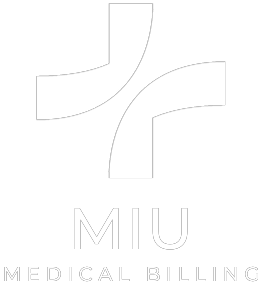What is credentialing?
Some of the terms involved in this context are:
- Medical Credentialing Specialist: A professional responsible for managing the credentialing process.
- Credentials: A catch-all phrase for a range of job titles that refer to people working in the credentialing area.
- Certified Credentialing Specialist: A credentialer who has undergone formal certification, which indicates their level of competency in this field.
This entails the verification of credentials for healthcare providers, and the credentialing procedure encompasses another range of providers, such as physicians, nurses, and allied health professionals, ensuring that they are standardized.
Provider credentialing is the lifeline of ensuring safety among patients. Healthcare organizations should, therefore, verify each provider’s qualifications and check on their professional conduct and integrity. This means entrusting only the most qualified providers responsible for caring for patients will enhance healthcare quality, minimize medical errors and malpractice claims, and reduce patient dissatisfaction.
Credentialing Specialist Responsibilities

A medical credentialing specialist is one of the most critical players in provider credentialing. Their work is associated with data collection, verification, and updating regarding providers’ qualifications, experience, and competence. In such a manner, credentialers stand as components that uphold regulatory requirements in healthcare and offer higher standards of care.
Credentialer vs. Medical Credentialing Specialist
Although “credentialer” is a profession, the credentialing professional would have specialties where more detailed verification occurs, which often requires specific education and knowledge compared to regular credentialers.
Certified Provider Credentialing Specialist Certification
Becoming a certified credentialing specialist establishes professionalism and expertise. This certification requires extensive training and testing with up-to-date knowledge and best practices in credentialing. Professional certification not only improves individual career opportunities but also furthers the integrity of the healthcare system.
Comprehensive Responsibilities
Credentialing specialist responsibility covers all those activities of which successful provider credentialing requires the following:
- Collection and Verification of Provider’s Qualifications: Credentialing specialists collect information about the provider’s education, training, and certificates. The credentialing specialists verify the same against the primary source, thus becoming authentic.
- Background and Ongoing Monitoring: There should be full-scale background checks on the service provider by running expert professionals with criminal offenses and malpractice claims records. Thus, the provider has no tainted professional career. On-site monitoring should still be in place regarding changes in current provider status.
- Organizing Provider Files and Documents: The credentialing experts will ensure the proper organization and retention of files and that there is up-to-date documentation, maintain quality standards, and follow governmental standards.
These are essential responsibilities in maintaining health care standards. Only allowing qualified providers to provide their services is what provider credentialing specialists do to protect the integrity of the health care system and, therefore, the patient care service.
Elements of a Credentialing Checklist
A credentialing checklist should be well-formatted to help in making the process easy. Key elements include:
- First-time Application and Verification: This stage deals with obtaining the first application from the supplier and verifying those acquired credentials against set standards.
The primary source verification process is among the most important ones:
Here, verification must happen at the source directly; in this case, medicine schools and licensing boards do it. - Re-credentialing timeliness and requirement: there is always a call for re-credentialing as the qualification becomes old. Developing a timely timeline and requirement ensures an organization is up to these procedures. Efficiency and accuracy
Implementing a checklist helps make the process of provider credentialing efficient and accurate since there is less room for errors and all necessary steps are diligently followed.
What is Aperture Credentialing?
Aperture credentialing is a novel approach in which technology has been introduced to change the face of credentialing. It lessens the administrative burden of healthcare organizations as many tasks are automated.
Advantages of Using Aperture
Aperture credentialing benefits the user in the following ways
- Time-Efficiency: The credentialing process is speeded up through automation.
- Zero Error: The human factor in the credentialing process is eliminated as checks and balances are standardized.
- Central Information: A single place to monitor provider credentials
- Technology: Technology does play an essential role in making provider credentialing tasks more efficient and modernized. Advanced credentialing systems, such as
Aperture credentialing can help healthcare organizations develop more streamlined, compliant yet efficient credentialing operations.
Credentialing and Providing Telemedicine Services

The COVID-19 pandemic thrust telemedicine into the spotlight as a provision in health care. With this phenomenon comes the expectation to maintain organizational credentialing and provide telemedicine services to ensure that telehealth providers meet necessary standards.
Unique Credentialing Challenges
Among those are cross-state licensing and differing state regulations regarding the credentialing procedure for providers, which creates complexity but is necessary from a compliance perspective.
Compliance and Quality Assurance
Proper credentialing is essential for keeping things compliant and quality in telemedicine. Thus, it keeps providers in a position of qualification that allows them to give appropriate care from another location or place, making patients secure and safe health-wise. Failure to satisfy the credentialing criteria brings the system problems since “it could not load credentials from any providers” and thus indicates a serious verification process is needed here.
FAQ
1. What is a Credentialing Specialist?
A credentialing specialist is responsible for verifying the qualifications and credentials of healthcare providers to ensure that they attain the standards required for practice.
2. Can a Non-Credentialed Provider Bill Under Another Provider?
No, a non-credentialed provider cannot bill under another provider’s name. Credentialing is quite significant in the billing and reimbursement processes in healthcare.
3. What Does a Credentialing Specialist Do?
Credentialing specialists gather and check the qualifications of the providers, do a background check, document, follow up on all paperwork done, and ensure that it is well within the standards set out by the law.
4. How do I become a certified provider credentialing specialist?
A person intending to be a credentialing specialist has to train for specific programs, gain experience in the area, and pass a certification test.
Conclusion
Provider credentialing is a significant process that protects patients from harm and keeps the standards of care high in the health sector. The professionals involved, such as medical credentialing specialists, play a significant role in ensuring that only qualified individuals provide care. As the healthcare landscape continues to evolve, especially with the growth of telemedicine, the importance of effective credentialing and providing telemedicine services will only increase. By embracing technology and maintaining high standards, healthcare organizations can navigate the complexities of provider credentialing and enhance the overall quality of care they deliver.




